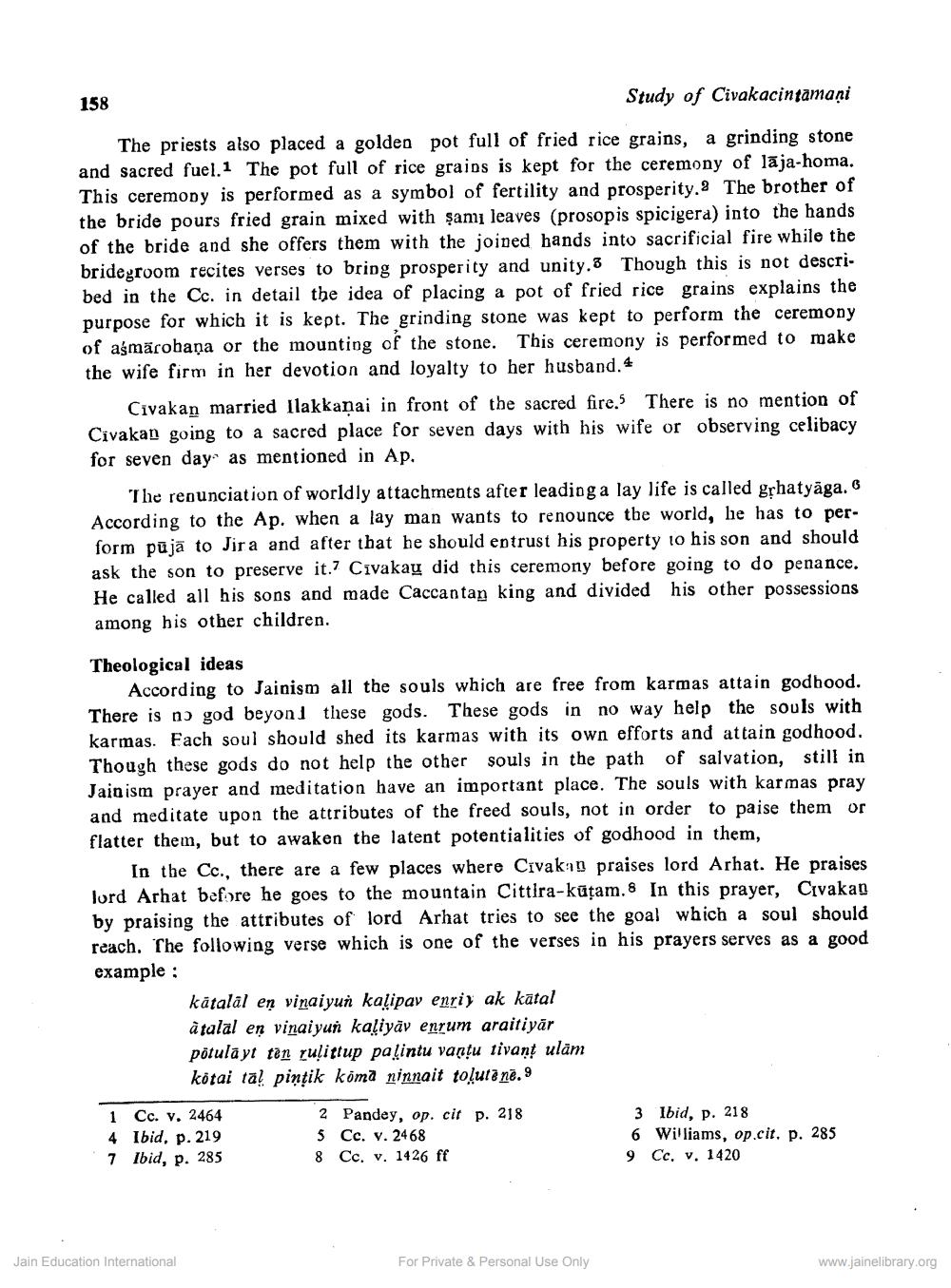________________
158
Study of Civakacintamani
The priests also placed a golden pot full of fried rice grains, a grinding stone and sacred fuel.1 The pot full of rice grains is kept for the ceremony of lāja-homa. This ceremony is performed as a symbol of fertility and prosperity. The brother of the bride pours fried grain mixed with şamı leaves (prosopis spicigera) into the hands of the bride and she offers them with the joined hands into sacrificial fire while the bridegroom recites verses to bring prosperity and unity.3 Though this is not described in the Cc. in detail the idea of placing a pot of fried rice grains explains the purpose for which it is kept. The grinding stone was kept to perform the ceremony of aśmärobaņa or the mounting of the stone. This ceremony is performed to make the wife firm in her devotion and loyalty to her husband. 4
Civakan married Ilakkaņai in front of the sacred fire. There is no mention of Civakan going to a sacred place for seven days with his wife or observing celibacy for seven day as mentioned in Ap.
The renunciation of worldly attachments after leading a lay life is called grhatyāga. According to the Ap. when a lay man wants to renounce the world, he has to perform pūjā to Jira and after that he should entrust his property to his son and should ask the son to preserve it.7 Civakau did this ceremony before going to do penance. He called all his sons and made Caccantay king and divided his other possessions among his other children.
Theological ideas
According to Jainism all the souls which are free from karmas attain godhood. There is no god beyond these gods. These gods in no way help the souls with karmas. Each soul should shed its karmas with its own efforts and attain godhood. Though these gods do not help the other souls in the path of salvation, still in Jainism prayer and meditation have an important place. The souls with karmas pray and meditate upon the attributes of the freed souls, not in order to paise them or flatter them, but to awaken the latent potentialities of godhood in them,
In the Cc., there are a few places where Civakan praises lord Arhat. He praises lord Arhat before he goes to the mountain Cittira-kūtam. 8 In this prayer, Civakan by praising the attributes of lord Arhat tries to see the goal which a soul should reach. The following verse which is one of the verses in his prayers serves as a good example :
katalal en vinaiyun kalipay enriy ak katal à talal en vinaiyun kaliyāv enrum araitiyar potulayt tên kulittup palintu vanļu tivant ulam kötai tal pinţik koma ninnait tolutē nē. 9
1 Cc. v. 2464 4 Ibid. p. 219 7 Ibid, p. 285
2 Pandey, op. cit p. 218 5 Cc. v. 2468 8 Cc. v. 1426 ff
3 Ibid, p. 218 6 Williams, op.cit. p. 285 9 Cc, v. 1420
Jain Education International
For Private & Personal Use Only
www.jainelibrary.org




